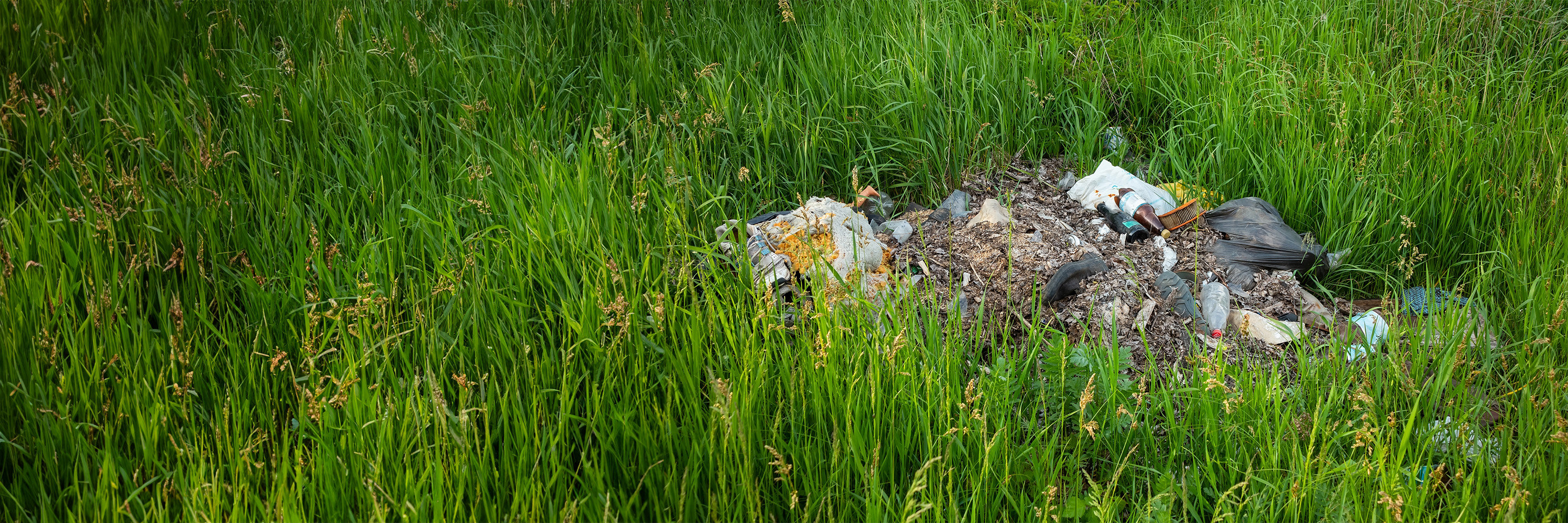We encourage all our customers, their households and their visitors to respect each others' lifestyles and think about how theirs may affect people around them. Sometimes lifestyles can clash though. We know this can be frustrating, but it can usually be resolved if you are respectful and considerate to your neighbours.
We're committed to helping prevent, manage and resolve antisocial behaviour (ASB) so that customers can feel safe, happy and secure in their homes. We work closely with other agencies such as the police, local authorities and Community Safety Partnerships. We all have different responsibilities and powers, so by working together we're better placed to tackle ASB, mitigate and resolve it.
In most cases there are things you can do to help resolve the issue or dispute yourself. We have tips and advice below on how to approach this. You can also find answers to common questions on the Help Hub.
If you're still finding it difficult to resolve issues or need more support or advice, our Communities team are happy to help. You can report ASB through the form below or click here to view all the ways you can get in touch with us.
Phone 999 if you or someone else is in immediate danger. If you have information about a crime, then report this to the police on 999 in an emergency or 101 for non-emergency reports.
Please bear in mind that noise disturbances or arguments might be due to someone experiencing domestic abuse not anti-social behaviour. Read our advice if you're worried about someone in your community.
We're open and transparent in our approach to antisocial behaviour and support the 'Antisocial Behaviour Case Review' process (previously known as the Community Trigger).
Click here to read our antisocial behaviour policy
Click here to find out more about the Antisocial Behaviour Case Review
What is antisocial behaviour
Antisocial behaviour (ASB) is when people act in a way that upsets, harasses, alarms or distresses others. We can help if this takes place in or around our homes. See the sections below to learn about the different types of ASB as well as advice on what to do and who to contact for help.
- Crime and violence
- Noise
- Environmental, rubbish and estate management
- Can I report ASB anonymously?
- It's good to talk
- If talking doesn't work
- What we can do to help
- Will my neighbour be evicted?

The law defines many activities as crimes. They include:
- Organised crime, county lines and cuckooing - click here for more information.
- Criminal damage and arson.
- Drug related activities.
- Gun and knife violence.
- Harassment and intimidation.
- Threatening behaviour or threats of violence.
- Physical or sexual abuse.
- Verbal abuse.
- Hate crimes (where someone is targeted because of who they are or their lifestyle).
These activities are illegal and can be very serious, so if you witness them or are a victim you should report them to the police immediately.
Do not put yourself in any danger and report the crime when it is safe to do so.
Once you have informed the police you can then contact us with the crime reference or incident number and police officer details.
Other sources of help and support
- Crimestoppers is an independent UK charity giving people the power to speak up and report crime anonymously. You can speak to them on 0800 555 111.
- Victim Support offers free, independent and confidential advice for victims of crime and traumatic incidents. Their free Supportline is on 0808 16 89 111
- Safe4me has an A-Z directory of national and local services offering support, advice and resources on a broad range of needs, concerns and topics.
Hate crime and hate related incidents
- Hate crimes should get special treatment from the police. They are incidents where someone is targeted specifically because of who they are or their lifestyle.
- They should be reported to the police immediately.
- We also have our own policy for dealing with hate crimes so please let us have your crime or incident number and police officer details so that we can play our part in supporting you.
Dangerous dogs
- It is illegal to keep any dog mentioned in the Dangerous Dog Act.
- Any dog can be dangerous, if you have concerns or are scared that a dog may attack you or others, contact the police.
- You can then contact us with the crime reference or incident number and the police officer details.

Noise, DIY and loud music
- Your neighbour may not realise that they are disturbing you, so try to have a friendly chat with them about it first. It may be enough to simply explain the impact the noise is having on you.
- If the noise persists and is distressing or disturbing you, you can contact your local council's Environmental Health team - search for your local team here. They have lots of information about statutory noise nuisances and can investigate and take action.
- If the noise continues, contact us with your incident logs and the details of the environmental health officer, so we can help to resolve things.
- If you don’t feel comfortable speaking to your neighbour, contact us and the Communities team can offer some practical advice and support. We may ask you to download the Noise App to record the noise.
Neighbour disputes
- If you have had or are having disagreements with a neighbour and you’re not sure how to resolve it yourself, there are several things you can do. See the 'It's good to talk' and 'If talking doesn't work' sections on this page.
- If you don’t feel comfortable speaking to your neighbour and you need some support, contact us as the Communities team are here to help.
Neighbours arguing
If you're worried about your neighbour, their safety or are concerned that they may be experiencing domestic abuse, there are several things you can do.
- If you think a crime has been committed or someone is in immediate danger, always dial 999.
- Call the local social services safeguarding team. Find the nearest social services to you here.
- Contact us, as our safeguarding & domestic abuse coordinators are here to help.
- More information on domestic abuse can be found here.
Children and babies crying or playing
We don't treat general day-to-day noise from children as ASB. But if you're worried about a child or their safety, there are several things you can do.
- Call the police on 999.
- Call the local social services safeguarding team. Find the nearest social services to you here.
- Contact the NSPCC. Find out how to contact them here.
Household noise or general living sounds
- This could include noises like doors opening and closing, footsteps vacuuming or loud conversations.
- Your neighbour may not be aware that they're disturbing you, so try to have a friendly chat with them about it first.
- We normally don't investigate general household noise as it is not statutory nuisance.
Dogs barking or other pet-related issues
- Your neighbour may not be aware that their pet is disturbing you, so try to have a friendly chat with them about it.
- If the noise persists and is distressing or disturbing you, you can contact your Environmental Health team through your local council. Search for yours here.
- If you’re concerned about the welfare of a dog or pet, contact the RSPCA by clicking here.
- If the noise continues, contact us with your incident logs and the details of the environmental health officer, so we can work with them and you, to find a resolution.
- If you don’t feel comfortable speaking to your neighbour, contact us and the Communities team can offer some practical advice and support. We may ask you to download the Noise App to record the noise.
The Noise App
If you've reported a noise disturbance to us, you might be asked to download The Noise App, which will allow you to record what you're hearing so that we can better understand the problem. You can also take photos and submit them as part of a case, and take short videos, Please don't try to submit any recordings, photos or videos unless you've been asked to by your investigating officer.
If you've been invited to download The Noise App by one of our team, you can find our user guide by clicking the button below:

Abandoned vehicles
- If you think a vehicle has been abandoned on your estate or in your community, please let us know.
- Depending on whose land it’s been left on, we’ll work with the council to remove it, or remove it ourselves if it’s on our land.
Parking issues
- Try having a friendly chat with the driver of the vehicle. They may not realise that they are causing problems or be aware of specific parking arrangements.
- If that doesn’t work, you can contact your local council if the vehicle is parked on a public verge or road and is breaking local parking regulations.
- Contact the police if it’s dangerously parked and needs to be removed immediately.
- Let us know if neighbours are using our car parks or parking spaces inappropriately and we will ask them to change their behaviour.
Dog fouling.
- Dog owners can be fined if they don’t clear up their pet's mess. The council should clean up pavements, parks and public areas. You can report problems to the council here.
- Try having a friendly chat with the owner. If that doesn’t work and the mess is on our land, contact us here.
Fly-tipping
- All customers are responsible for removing their large waste items. You can arrange for the council to take these away for a small fee. Click here for West Northamptonshire. Click here for Amber Valley.
- If you spot fly-tipping in your community, you can report it to us anonymously. To find out more about how fly-tipping affects Futures and to report it, click here.
Graffiti
- This is illegal. You can report it to the police, and they’ll investigate but they won't remove it.
- If the graffiti’s on public land, you will need to contact your local council and they’ll remove it.
- If it’s on our land, let us know and we’ll arrange to clean it up.
Hoarding
- If you think someone is hoarding (storing an excessive amount of items in their home) then please contact us.
- If you, or someone you know, is hoarding, there’s lots of information and support on the NHS website here.

You can report antisocial behaviour to us anonymously. But we can do more to help if we know who you are - including keeping you updated. We won't share your details with anyone without asking for your consent first.
If an ASB case goes to court, we usually need witnesses to give evidence, so we may ask if you’re happy to do this. We’ll explain what this means for you, and it will be your decision if you want to do so or not.
If you don’t feel confident talking to your neighbour or it's difficult to find a time when you’re both in, download our 'Dear neighbour' template letter here. Change the text in yellow to give details of your situation and pop it through their letterbox.
Alternatively, Our communities housing officers are trained to support with this kind of situation and we can help you to feel confident to report issues and have difficult conversations. Please contact us and they will be able to help.

Sometimes, people simply don’t realise they are behaving in an antisocial way or being un-neighbourly. Try and talk to your neighbour when the issue first arises and explain how what they are doing is affecting you.
Top tips
- The most effective way to resolve disagreements is to discuss them, as long as you feel safe and confident to do so.
- Don’t speak to them about the issue when you’re feeling angry or upset. The conversation is more likely to have a positive outcome if everyone is calm.
- Similarly, if your neighbour seems stressed, anxious, angry or worked up you may be better off talking to them later when their mood has improved.
- Plan what you’re going to say, before you say it.
- Talk face-to-face if possible.
- Be clear about what the problem is, how it is affecting you how you think it could be resolved. Try not to start by accusing or blaming if possible - instead just say 'when you do [this] it makes me feel like [this].
- Stay calm, polite and pleasant.
- Be prepared to listen to their side of the story.
- Try to come to an agreement that everyone is happy with.
- Don’t put yourself at risk. Leave straight away if people are aggressive or threatening.
- If you don’t feel confident talking to your neighbour or it's difficult to find a time when you’re both in, download our 'Dear neighbour' template letter here. Change the text in yellow to relate to your situation and pop it through their letterbox.

If you’ve tried talking to your neighbour and can't reach an agreement, you can ask us to help. You can also tell us about anything else that’s happening in your neighbourhood that you think needs improving.
It may be that we’re not the best people to sort out the issue. If so, we may suggest you talk to your local council or another organisation and we’ll work with them to support you.
Please tell us:
- What has happened (who, when, where, what and why).
- How the crime or antisocial behaviour has affected you.
- About any contact you have had with the police or other agencies and any agreed next steps.
- How you’d like us to contact you.
We work with the police and other agencies based on the information you’ve given us to help ensure safety and a joined-up response where criminal activity is taking place.
Scroll down and fill in the form below to let us know about antisocial behaviour that you would like our help with.

We assess all ASB reports on a case-by-case basis, so the action we take will depend on the situation, the evidence, what other partners or agencies are doing and how much the behaviour is affecting you or the community.
Our communities housing officers are trained to support people with ASB and we can help in several ways, including:
- Offering advice, support and signposting other services. This approach successfully resolves most situations.
- If the perpetrator is one of our customers then we may talk to them or give them a verbal or written warning. We can issue an ‘Acceptable behaviour contract’ or arrange independent mediation.
- If the person is not our customer we can contact their landlord for help if they’re a tenant. If they're a homeowner, we'll support you to contact appropriate agencies (environmental health, police etc) to help you.
- If the problem is a wider community issue, we'll work with the local authority and police to tackle it.
- Few ASB cases need legal or enforcement action. But if someone has broken their tenancy agreement we may be able to take tenancy enforcement action. This could include civil injunctions (a court order to restrict someone's behaviour) or issuing a 'Notice of seeking possession'.
- If it's not possible to take criminal, civil or tenancy enforcement action your communities housing officer will look at other options which could include good neighbour agreements or mediation.
- We want to do as much as we can to help but we have limited powers as a landlord. So where necessary we can involve other organisations through a process called an Anti-Social Behaviour Case Review comes in, Click here to find out more.
- Communities housing officers mostly work out and about n communities. They also run estate walkabouts alongside other agencies, such as community safety teams and local authorities. Find out more about the walkabouts here.
- Want to find out more about our communities housing officers and the communities team? Click here for more.

In most cases, ASB can be tackled or resolved successfully without resorting to evicting people. Futures always treats eviction as a last resort. However, customers who cause antisocial behaviour are placing their tenancy at risk and could still lose their home.
We can only evict someone if a judge agrees that it’s appropriate and proportionate action to take.
We're committed to working with you and keeping you up-to-date on what we can and will do to help as well as what we need from you and other agencies to progress a case. We will do this throughout the case management process. You can read more about this in our antisocial behaviour policy here.
Report antisocial behaviour here

If you want our help to deal with antisocial behaviour you can fill out the form below. Please give us as much information as you can upfront so that we can investigate the issue. We may contact you for more information if needed.
Sharing your contact details means that we can keep you updated. The details you give us will only be used to contact you directly about the issue and will not be shared with anyone you are reporting.
You can choose not to provide personal information when submitting this form. But this means we won't be able to contact you for further information or to provide an update if this is the case, but will do our best to resolve the issue with the details you’ve supplied.




